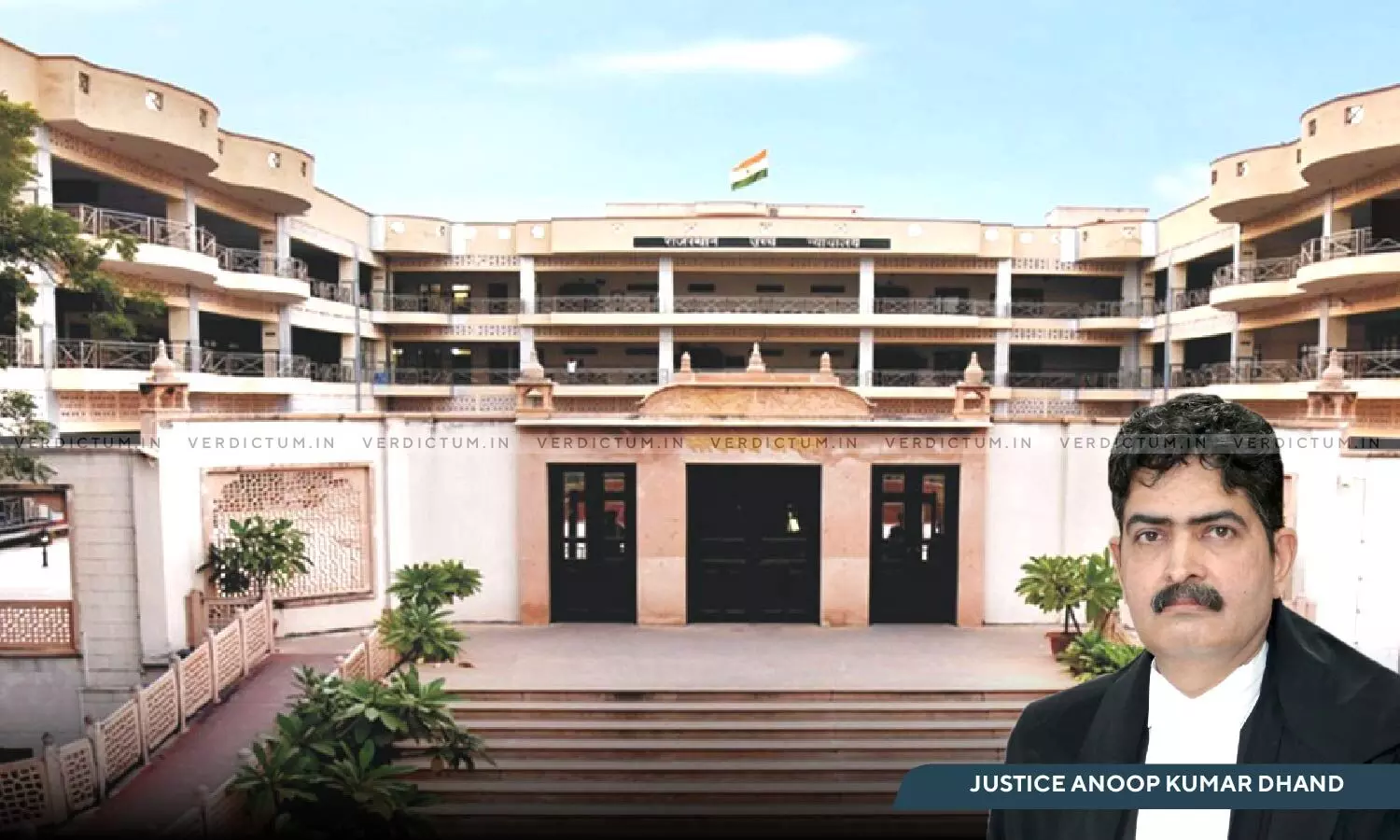
Justice Anoop Kumar Dhand, Rajasthan High Court
Rajasthan High Court Directs State To Rectify Shortcomings In Regulations & Policies That Lead To Discriminatory Practices Against Females
 |
|The Petitioner approached the High Court with the grievance that the less qualified male lecturers were promoted to the position of Principal, and the Petitioner was denied promotion solely due to her gender.
While ordering that the case of a woman Lecturer for the promotion to the post of Principal be taken into consideration, the Rajasthan High Court has issued a mandamus directing the State to rectify the existing irregularities and deficiencies in various Rules, Regulations, and Policies, inasmuch as, such shortcomings have led to discriminatory practices against females who perform the same work and duties as their male counterparts.
The Petitioner approached the High Court challenging the impugned order passed by the Rajasthan Civil Services Appellate Tribunal, Jaipur (Tribunal) against the petitioner whereby the appeal preferred by her seeking promotion from the post of Lecturer to Principal had been rejected.
The Single Bench of Justice Anoop Kumar Dhand ordered, “A general mandamus is hereby issued to the State of Rajasthan, directing to take immediate policy decision and action to address and rectify the existing irregularities and deficiencies in various Rules, Regulations, and Policies, inasmuch as, such shortcomings have led to discriminatory practices against females who perform the same work and duties as their male counterparts, yet do not receive the equivalent benefits, provided to males.”
Advocate Vikram Singh Nain represented the Petitioner, while Advocate Anjum Parveen Salawat represented the Respondent.
Factual Background
The Petitioner was appointed to the post of Lecturer after participating in the process for selection, initiated by the Rajasthan Public Service Commission (RPSC). The petitioner secured merit No.4 when she was selected by the RPSC for her appointment to the post of Lecturer. She was given a posting on the said post in various boys' institutions and remained posted in boys' institution throughout her service career.
When the seniority list was prepared by the respondents for promotion to the post of Principal, her higher position in merit was discarded and less meritorious candidates, i.e., Neeraj Kumar Sharma (Merit No.8) and Ashok Kumar Joshi (Merit No.31) were granted promotion to the post of Principal. It was the Petitioner’s case that she was denied promotion, simply for the reason that she is a female.
Reasoning
Referring to the Rajasthan Educational Service Rules, 1970, the Bench noted that no distinction had been made between male and female Lecturers. Likewise, there is no bar to getting a promotion to a higher post based on Rule 4(4). “Rule 4(4) similarly deals with two Schedules, i.e., Schedule-I for Boys Institutions and Schedule-II for Girls Institutions. Therefore, a female should not be placed at a disadvantage simply because of her gender, especially when she is more meritorious than the other candidates (male)”, it said.
The Bench noted that the petitioner herein, a female Lecturer, posted in Boys' institution, had been denied promotion to the post of Principal, only because she is a female, falling in Schedule-II attached to Rule(4) of the Rules of 1970. “Since No discrimination has been caused under the provisions of Rule 28 (3) of the Rules of 1970 for preparing a different seniority list for female Lecturers, the so-called classification made by the respondents on the basis of Schedules-I & II, has no legal bearing”, it said.
“...a discrimination will not survive constitutional scrutiny when it is grounded in, and perpetuates stereotypes about a class constituted by the grounds prohibited in Article 15(1). If any ground of discrimination, whether direct or indirect, is founded on a stereotypical understanding of the role of the sex, it would not be distinguishable from the discrimination which is prohibited by Article 15 on the grounds only of sex. A provision challenged as being ultra vires the prohibition of discrimination on the grounds only of sex under Article 15(1) is to be assessed not by the objects of the State in enacting it, but by the effect that the provision has, on affected individuals and their fundamental rights”, it said.
The Bench further held, “In the considered opinion of this court, this is a clear case of discrimination, which not only falls within the purview of Article 14 of the Constitution but is also specifically prohibited by Article 15(1) and Article 16(2) of the Constitution. The directive to the State, prohibiting discrimination against any citizen on the grounds of sex and ensuring equality of opportunity in public employment, is a fundamental principle that demands strict adherence. Unlike the freedoms outlined in Article 19 of the Constitution, there is no room to restrict the absolute nature of the rights guaranteed under Article 15(1) and 16(2) of the Constitution. There would be no scope whatever to justify differentiating between the male and female sexes in the matter of appointment and promotion. The right of women should not be denied on fanciful assumptions of what work the woman could do and could not do.”
Finding the act on the part of the respondents in not considering the case of the petitioner for promotion to the post of Principal as violating the Fundamental rights of the petitioner under Articles 14, 15, 16 & 21 of the Constitution, the Bench directed the Respondents to consider the case of the petitioner for promotion to the post of Principal, as per her seniority, with effect from the date on which the male lecturers, junior to her, have been granted promotion to the post of Principal and also provide her all the consequential benefits.
Cause Title: Smt. Rajani Bhardwaj v. Director, Secondary Education & Anr. (Neutral Citation: 2025:RJ-JP:11228)
Appearance:
Petitioner: Advocate Vikram Singh Nain
Respondent: Advocate Anjum Parveen Salawat, Dy.G.C. Namita Parihar,